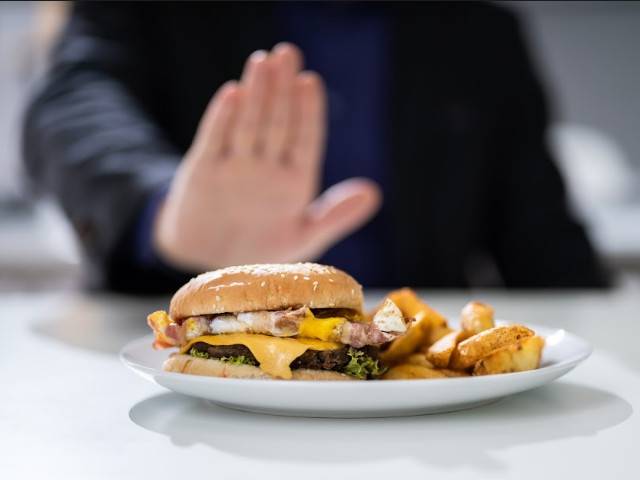Changes To Prevent Heartburn

4 Diet Changes You Should Make If You're Prone To Heartburn
Heartburn, which is also medically known as acid reflux, happens when the muscles in the body's lower esophagus experience a backflow of acids and foods. Simply put, the content of your stomach has a regular tendency to move back up to the esophagus or the food pipe. When this happens, you'll get an uncomfortable, burning feeling in your chest after consuming a heavy meal.
It might not sound like something to be urgently worried about, but it's important to note that heartburns don't go on their own. If it's already occurring more than once a week or it's already affecting your sleep and way of life, it could indicate a more chronic and serious kind of acid reflux–gastroesophageal reflux disease (GERD).
What To Eat And Avoid To Help Your Heartburn
Treating your heartburn could include a combination of methods and approaches. There could be medications as prescribed by your doctor. Additionally, you may want to steer clear of foods that can trigger or worsen your symptoms.
Do note that what you eat mainly affects how much acid is produced by the stomach. The key is knowing what causes heartburn, particularly when it comes to the kinds of foods to eat and avoid. By doing some changes to your diet, you can possibly manage or even avoid getting such discomfort each time you eat anything.
Here are some diet changes you might want to make:
1. Knowing And Avoiding The Trigger Foods
Certain foods can trigger heartburn by increasing the acid in your stomach. If you find it difficult at times to tell which foods can particularly trigger your symptoms, it might be a good idea to keep a journal or a diary where you can list down your heartburn attacks and what you think caused them. That way, you can track your heartburns and know what foods to avoid next time.
The most common trigger foods and drinks that you may want to be cautious of are alcohol, citrus juices and fruits, chocolate, tomatoes, drinks with caffeine in them, onions, spicy foods, and peppermint. High-fat foods, such as fried foods, lard, bacon fat, full-fat dairy items, as well as snacks or desserts should also be avoided.
2. Eat More Of The Right Kinds Of Foods
If there are triggers, there are also foods that are good for alleviating or preventing your symptoms. While none of these foods can cure the condition, they could help in managing your acid reflux. Vegetables are some of your best bets as they're naturally low in sugar and fat, hence reducing the amount of acid in the stomach.
Some of your options could include potatoes, leafy greens, asparagus, cucumbers, green beans, cauliflowers, and broccoli. Additionally, other foods that are good in reducing stomach acid are:
• Ginger
• Non-citrus fruits, like bananas, pears, apples, and melons.
• Oatmeal
• Egg whites
• Seafood
• Lean meats
• Healthy fats, such as sunflower oil, avocados, sesame oil, walnuts, olive oil, and flaxseed.
For a healthier alternative, stay away from fried foods as much as possible. Your meat and seafood can be poached, baked, broiled, or grilled. Doing this diet change won't just help with your heartburn, but it may also boost wellness and immunity.
3. Don't Go To Bed Immediately After Eating
Going to bed with a full stomach won't allow enough time for the food to be digested properly. When you lie down after eating, acid levels could go up, which would then could trigger acid reflux.
The best thing to do is to give your stomach at least two to three hours to rest before going to bed.
4. Eat Slowly
Eating slowly lets your brain catch up with the signals being sent by your stomach as you fill it with food. Whenever you eat anything, the stomach sends chemical messengers to the brain as an indication that food is being consumed. When you're full, the brain sends back a feeling of satiety or fullness, which tells your stomach that you've had enough food.
However, those chemical messengers from the stomach could take several minutes before they can reach the brain. If you eat quickly, there's a tendency for the stomach to overfill before it can send a signal to the brain. When that happens, it's already too late to know that you're overfilled with food, triggering heartburns.
Conclusion
Heartburns can occur at some point in one's life, but it doesn't mean that you should suffer from it for most of your life. If you've been experiencing this discomfort for quite a while now, it might be time to make some diet changes. Avoiding trigger foods could greatly help. It's also important to know the right kinds of foods to consume.
Don't go to bed on a full stomach and enjoy your food sparingly. Don't rush your bites so you can let the brain and stomach do their job. Living with acid reflux isn't uncommon but it doesn't mean that you can no longer manage or prevent it.
It might not sound like something to be urgently worried about, but it's important to note that heartburns don't go on their own. If it's already occurring more than once a week or it's already affecting your sleep and way of life, it could indicate a more chronic and serious kind of acid reflux–gastroesophageal reflux disease (GERD).
What To Eat And Avoid To Help Your Heartburn
Treating your heartburn could include a combination of methods and approaches. There could be medications as prescribed by your doctor. Additionally, you may want to steer clear of foods that can trigger or worsen your symptoms.
Do note that what you eat mainly affects how much acid is produced by the stomach. The key is knowing what causes heartburn, particularly when it comes to the kinds of foods to eat and avoid. By doing some changes to your diet, you can possibly manage or even avoid getting such discomfort each time you eat anything.
Here are some diet changes you might want to make:
1. Knowing And Avoiding The Trigger Foods
Certain foods can trigger heartburn by increasing the acid in your stomach. If you find it difficult at times to tell which foods can particularly trigger your symptoms, it might be a good idea to keep a journal or a diary where you can list down your heartburn attacks and what you think caused them. That way, you can track your heartburns and know what foods to avoid next time.
The most common trigger foods and drinks that you may want to be cautious of are alcohol, citrus juices and fruits, chocolate, tomatoes, drinks with caffeine in them, onions, spicy foods, and peppermint. High-fat foods, such as fried foods, lard, bacon fat, full-fat dairy items, as well as snacks or desserts should also be avoided.
2. Eat More Of The Right Kinds Of Foods
If there are triggers, there are also foods that are good for alleviating or preventing your symptoms. While none of these foods can cure the condition, they could help in managing your acid reflux. Vegetables are some of your best bets as they're naturally low in sugar and fat, hence reducing the amount of acid in the stomach.
Some of your options could include potatoes, leafy greens, asparagus, cucumbers, green beans, cauliflowers, and broccoli. Additionally, other foods that are good in reducing stomach acid are:
• Ginger
• Non-citrus fruits, like bananas, pears, apples, and melons.
• Oatmeal
• Egg whites
• Seafood
• Lean meats
• Healthy fats, such as sunflower oil, avocados, sesame oil, walnuts, olive oil, and flaxseed.
For a healthier alternative, stay away from fried foods as much as possible. Your meat and seafood can be poached, baked, broiled, or grilled. Doing this diet change won't just help with your heartburn, but it may also boost wellness and immunity.
3. Don't Go To Bed Immediately After Eating
Going to bed with a full stomach won't allow enough time for the food to be digested properly. When you lie down after eating, acid levels could go up, which would then could trigger acid reflux.
The best thing to do is to give your stomach at least two to three hours to rest before going to bed.
4. Eat Slowly
Eating slowly lets your brain catch up with the signals being sent by your stomach as you fill it with food. Whenever you eat anything, the stomach sends chemical messengers to the brain as an indication that food is being consumed. When you're full, the brain sends back a feeling of satiety or fullness, which tells your stomach that you've had enough food.
However, those chemical messengers from the stomach could take several minutes before they can reach the brain. If you eat quickly, there's a tendency for the stomach to overfill before it can send a signal to the brain. When that happens, it's already too late to know that you're overfilled with food, triggering heartburns.
Conclusion
Heartburns can occur at some point in one's life, but it doesn't mean that you should suffer from it for most of your life. If you've been experiencing this discomfort for quite a while now, it might be time to make some diet changes. Avoiding trigger foods could greatly help. It's also important to know the right kinds of foods to consume.
Don't go to bed on a full stomach and enjoy your food sparingly. Don't rush your bites so you can let the brain and stomach do their job. Living with acid reflux isn't uncommon but it doesn't mean that you can no longer manage or prevent it.
MORE





